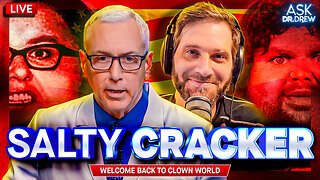Premium Only Content

Content of Digital Marketing
Content of Digital Marketing
The job description of a Digital Marketer can vary depending on the organization, industry, and specific role within the field. However, the key responsibilities of Digital Marketing role as under:
01. Developing and implementing digital marketing strategies.
02. Website management and optimization.
03. Content creation and marketing.
04. Social media management.
05. Search engine marketing (SEM) and pay-per-click (PPC) advertising
06. Email marketing.
07. Analytics and reporting.
08. Conversion rate optimization (CRO).
09. Online advertising and remarketing.
10. Stay updated on industry trends.
Developing and implementing digital marketing strategies: You will be responsible for creating and executing comprehensive digital marketing plans to achieve the organization's marketing objectives. This includes identifying target audiences, setting goals, and selecting the appropriate digital channels and tactics to reach and engage with customers.
Website management and optimization: You will oversee the organization's website, ensuring it is user-friendly, visually appealing, and optimized for search engines (SEO). This may involve managing content updates, analyzing website traffic and performance, and implementing strategies to improve conversion rates and user experience.
Content creation and marketing: You will create and curate compelling and relevant content for various digital channels such as websites, blogs, social media, email marketing, and advertisements. This includes writing, editing, and proofreading content, as well as coordinating with graphic designers or video producers for multimedia content.
Social media management: You will develop and implement social media strategies to increase brand awareness, engagement, and customer loyalty. This involves managing social media accounts, creating and scheduling content, monitoring trends and conversations, engaging with followers, and analyzing social media metrics to optimize performance.
Search engine marketing (SEM) and pay-per-click (PPC) advertising: You will plan and execute search engine advertising campaigns, such as Google Ad Words, to drive traffic, leads, and conversions. This includes conducting keyword research, creating ad copy, managing budgets, monitoring campaign performance, and optimizing ads for maximum ROI.
Email marketing: You will design and execute email marketing campaigns to nurture leads, engage with customers, and promote products or services. This involves creating email templates, managing subscriber lists, analyzing email metrics, and implementing segmentation and personalization strategies.
Analytics and reporting: You will analyze digital marketing data using tools like Google Analytics to measure the effectiveness of campaigns, track key performance indicators (KPIs), and generate reports. This data-driven approach allows you to make data-informed decisions, identify trends, and optimize marketing strategies for better results.
Conversion rate optimization (CRO): You will identify opportunities to improve website conversions and user experience through A/B testing, landing page optimization, user journey analysis, and other CRO techniques. This involves monitoring and optimizing key conversion points and implementing strategies to maximize conversion rates.
Online advertising and remarketing: You will plan and manage online advertising campaigns across various platforms, such as Google Ads, social media ads, and display ads. Additionally, you may implement remarketing campaigns to target and engage with previous website visitors or customers.
Stay updated on industry trends: Digital marketing is a dynamic field, so you will need to stay informed about the latest trends, best practices, and emerging technologies. This may involve attending industry conferences, participating in webinars, and continuous learning through online resources.
-
 LIVE
LIVE
Glenn Greenwald
2 hours agoTrump and Rubio Apply Panama Regime Change Playbook to Venezuela; Michael Tracey is Kicked-Out of Epstein Press Conference; RFK Senate Hearing | SYSTEM UPDATE #508
17,209 watching -

MattMorseTV
1 hour ago🔴Trump just SHATTERED the RECORD.🔴
1.18K -
 1:05:11
1:05:11
Donald Trump Jr.
2 hours agoBuilding the Future with American Bitcoin, Plus Eric's Triggered Debut! | TRIGGERED Ep.272
78.4K51 -
 1:01:40
1:01:40
The Nick DiPaolo Show Channel
4 hours agoTrump Waiting On Tariff Ruling | The Nick Di Paolo Show #1788
13.7K18 -
 1:23:59
1:23:59
Dr. Drew
8 hours agoSalty Cracker: Dr. Drew's Birthday, Sydney Sweeney's Jeans, Rosie's Apology To MAGA & More News From Our Clown World – Ask Dr. Drew
94.1K46 -
 LIVE
LIVE
Rallied
1 hour ago $0.46 earnedWarzone Solo Challenges
113 watching -
 1:04:40
1:04:40
BonginoReport
2 hours agoMAHA Madness: RFK Jr. vs Newsom - Nightly Scroll w/ Hayley Caronia (Ep.127) - 09/04/2025
36.6K20 -
 1:58:36
1:58:36
Redacted News
4 hours agoUkraine bans Christians, Trump Sends Troops to Chicago, German AFD members being murdered | Redacted
112K92 -
 1:17:43
1:17:43
Michael Franzese
3 hours agoMy Daughters CONFRONTED Me About Being a Mobster Dad
28.2K2 -
 24:02
24:02
Kimberly Guilfoyle
6 hours agoCartel Strikes: Breaking News Coverage! | Ep.251
30.4K11